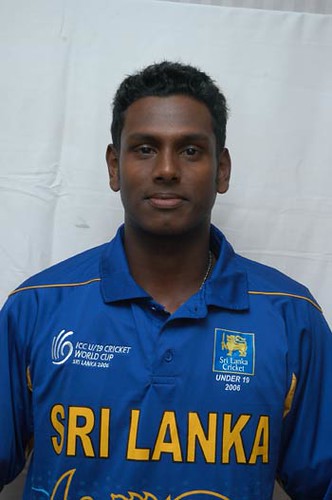Angelo Mathews becomes first international cricketer to be timed out in 146 years
Angelo Mathews #AngeloMathews

Angelo Mathews was timed out against Bangladesh (REUTERS)
Angelo Mathews became the first player in 146 years of international cricket to be timed out, sparking tensions in a Cricket World Cup match between Sri Lanka and Bangladesh.
The Sri Lanka batter came out to the crease and was not ready to face his first ball within two minutes, and bowler Shakib Al Hasan and Bangladesh appealed.
Mathews attempted to argue he had an issue with his helmet, but the umpires had to uphold the decision when Bangladesh chose not to withdraw the appeal.
Sri Lanka had been going well in their first innings against Bangladesh, and were 135 for three when Sadeera Samarawickrama advanced down the wicket and played the ball straight to Mahmudullah just inside the boundary rope.
That was the wicket that sparked the chain of events that have made history.
Mathews hovered on the sidelines before eventually departing the pitch in a controversial chain of events. He had been preparing to face the delivery when the strap of his helmet broke, and while waiting for the replacement, passed the two-minute mark.
Facing against the spin-bowler, Mathews did not have to wear a helmet, but it could spark yet another debate surrounding the spirit of cricket.
The laws of cricket state that the batter has to be ready to face the next ball within three minutes of dismissal or retirement, in the World Cup, it is two minutes.
Ex-Ireland wicketkeeper Niall O’Brien said on Test Match Special: “I think he was ready to face the ball. He was on the pitch and his equipment failed him. I think there was a mistake there.”
Sri Lanka are seventh in the table, four points behind New Zealand who occupy the final semi-final place, but there is still more to play for with only the top eight qualifying for the 2025 Champions Trophy.
Bangladesh are also in the hunt for qualification, but are ninth in the table, and ahead of the match were the only other team – as well as England – to have won just one of their seven matches.
The match had already faced problems due to the poor air quality in Delhi that forced Bangladesh to cancel training, and then only allow the non-asthmatic players to take part ahead of the match.